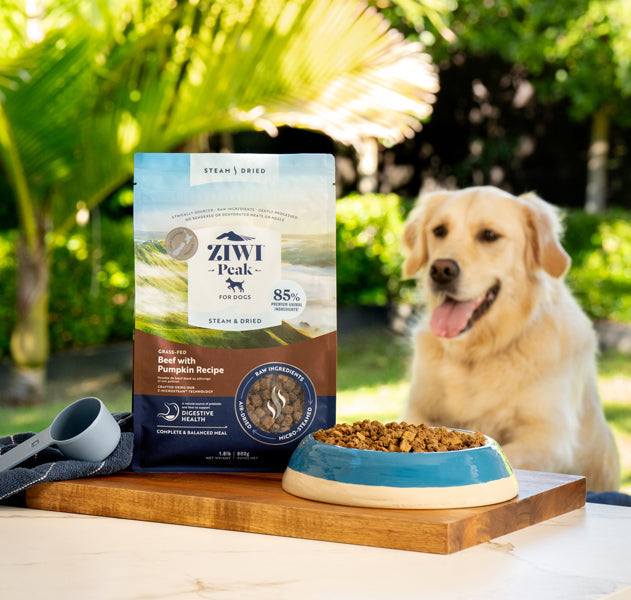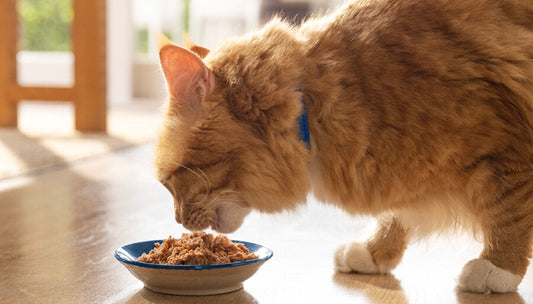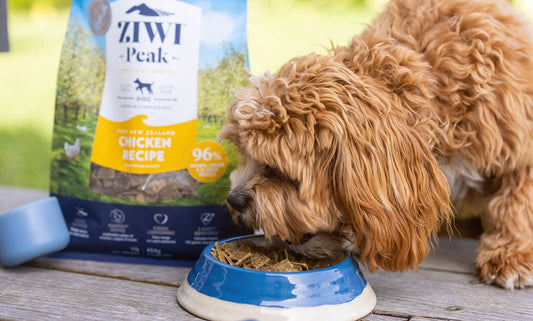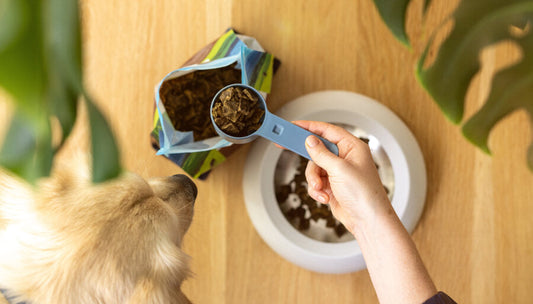 When a dog starts to lose weight without an obvious explanation, or seems to have lost interest in their food, it could be cause for concern.
When a dog starts to lose weight without an obvious explanation, or seems to have lost interest in their food, it could be cause for concern.
Why is your dog losing weight?
Here are some possible reasons as to why your dog could be losing weight:
- Picky eater – some dogs have food preferences that need to be catered to.
- Life stage – as dogs age, they become less active and eat less.
- Insufficient diet – they might lack the right amount of calories and nutrients from their diet.
- Health issues – almost any underlying health issue and subsequent medication can impact a dog’s eating habits.
- Stress – stress is a universal cause behind a potential decrease in appetite, and your dog could be experiencing it.
What should I look for in an underweight dog?
A loss of energy and a dull coat may be a sign that your dog is underweight. Another guide is to examine your dog’s weight and size by paying close attention to their:
- Side profile – sit on the ground beside your dog, so their body is at your eye level. Their abdomen should be higher up than their ribcage. A severe tuck suggests they’re underweight.
- Ribs and spine – place both your thumbs on your dog's spine and open your hands over their ribcage. You should be able to feel their ribs, but they shouldn’t be protruding. Do the same test on their spine by running your hands along it gently.
-
Birds-eye profile – stand just in front of your dog’s face and look down on them. Ideally their shape will resemble a subtle hourglass (their waist tucked in only slightly behind the ribs). If their waist is extremely narrow, they’re likely underweight.
*Please note that every dog breed is different; talk to your dog’s vet to ensure you can best measure their ideal weight.
Use the below dog weight chart to see how close your dog is to their ideal body shape. Remember that some dog breeds are naturally slim, so it’s best to consult with your vet.

How to get your dog back to a healthy weight
Pet foods rich in high-quality, meat-based fats can help to support healthy weight gain. You can also try feeding them four smaller meals each day, rather than just one or two.
Growing puppies also need more calories than adult dogs, as they use their energy to grow at a rapid pace.
If you think your dog’s loss of weight could be due to a health issue, it’s best you consult your vet on how to get them back to their optimum weight.
What’s the best dog food for weight gain?
ZIWI Peak® is well-suited for underweight dogs, as each recipe contains the right level of natural fats that appeal to your carnivore’s characteristics and biology.
- For picky eaters, try switching it up with different ZIWI Peak air-dried recipes and top with ZIWI Peak’s wet dog food or vice versa.
- For food sensitivities, try any of ZIWI Peak’s recipes with green tripe, which naturally assists their digestion. Or a novel protein recipe such as ZIWI Peak air-dried Venison recipe.
Use ZIWI’s feeding calculator for a general guide; enter the healthy weight you want your dog to be, not the weight they are. For weight gain, you may add 10% more than the recommended feeding amount until they reach their optimum weight.
Sources:
- https://www.purina.com/articles/dog/health/how-to-help-dog-gain-weight
- https://healthypets.mercola.com/sites/healthypets/archive/2020/02/10/wha...
- https://wagwalking.com/symptom/why-is-my-dog-underweight
- https://pets.thenest.com/tell-dog-skinny-4663.html
- https://vcahospitals.com/know-your-pet/weight-loss-abnormal-in-dogs









